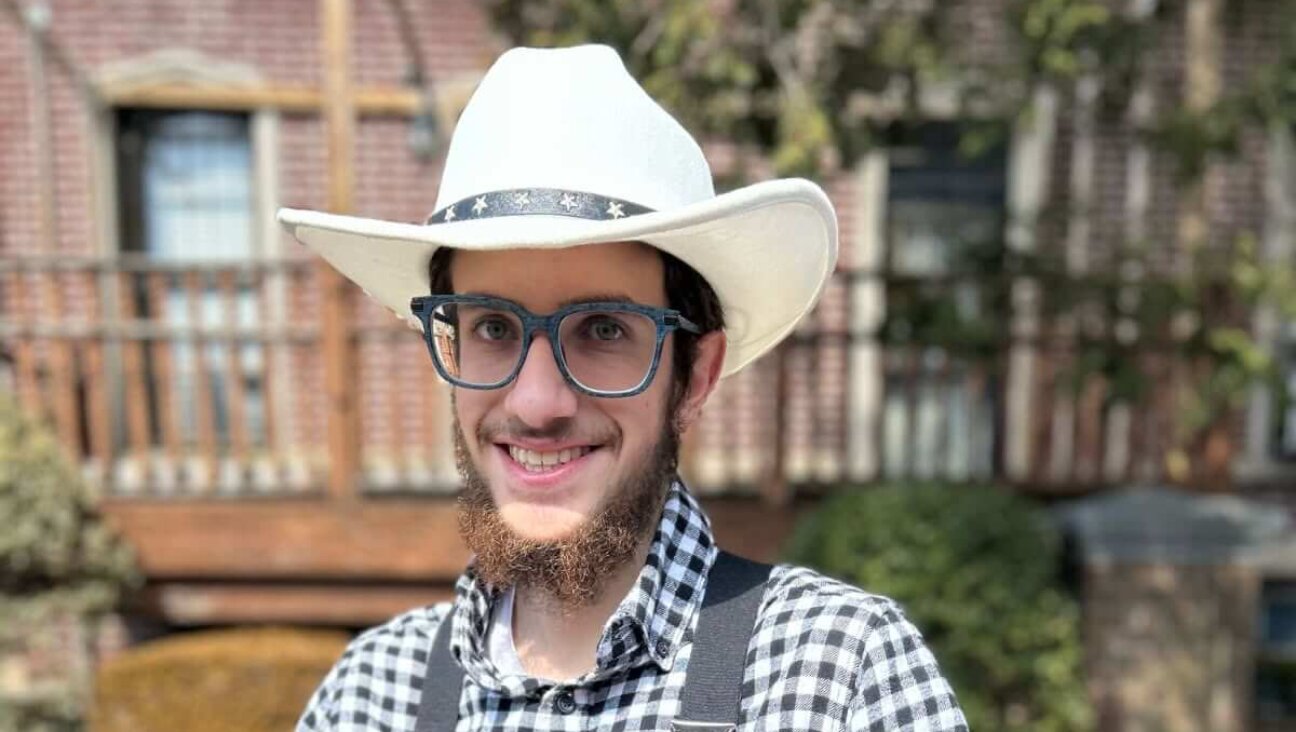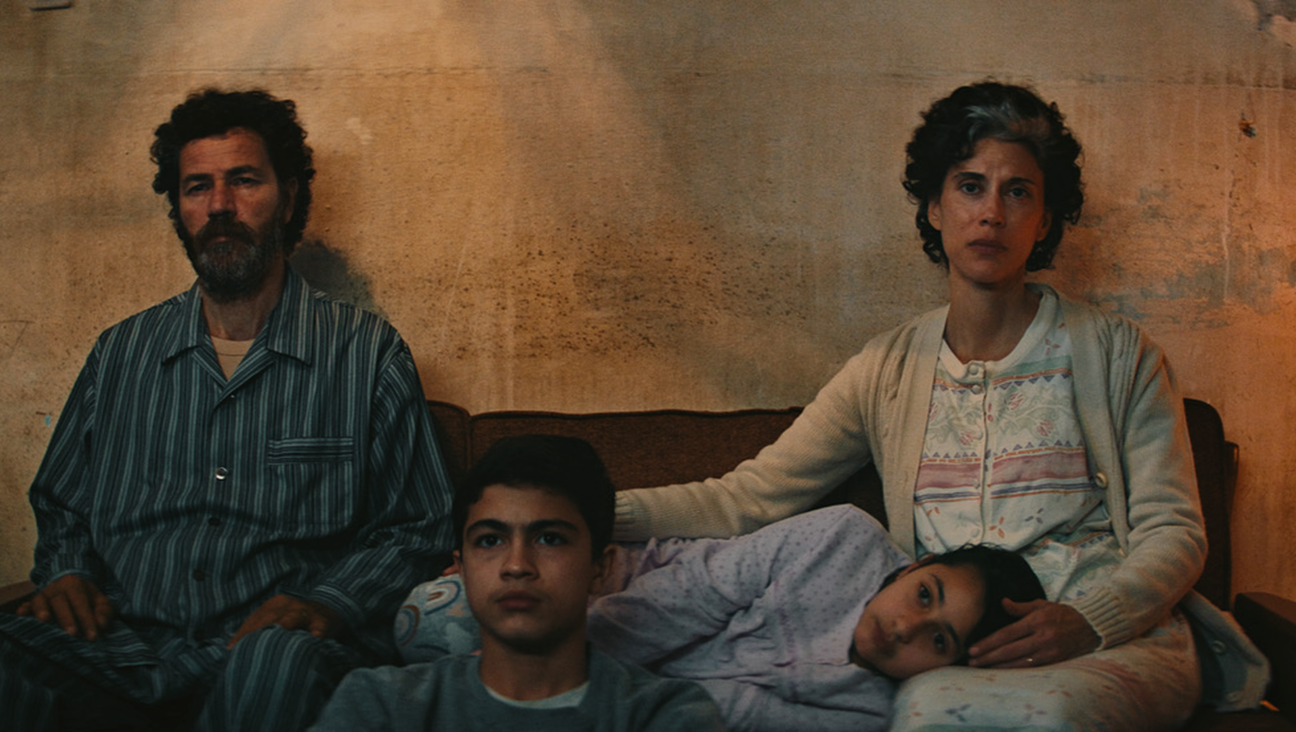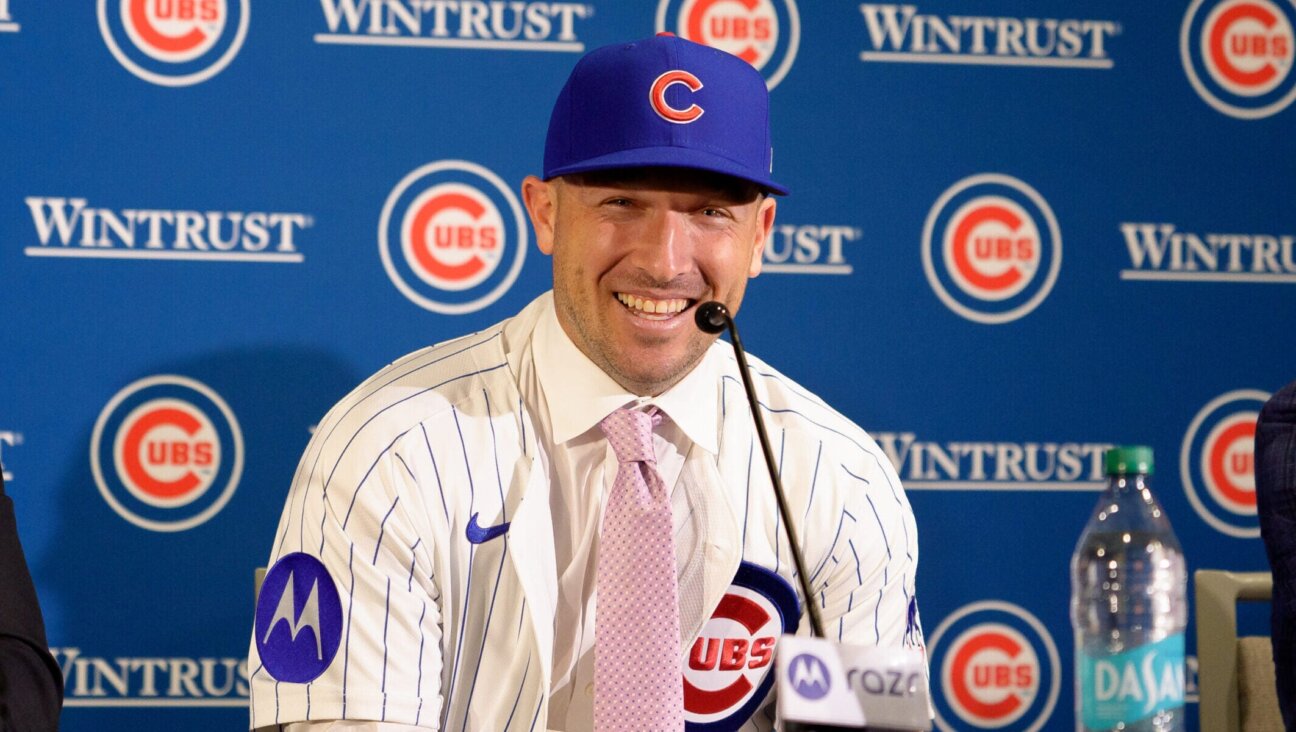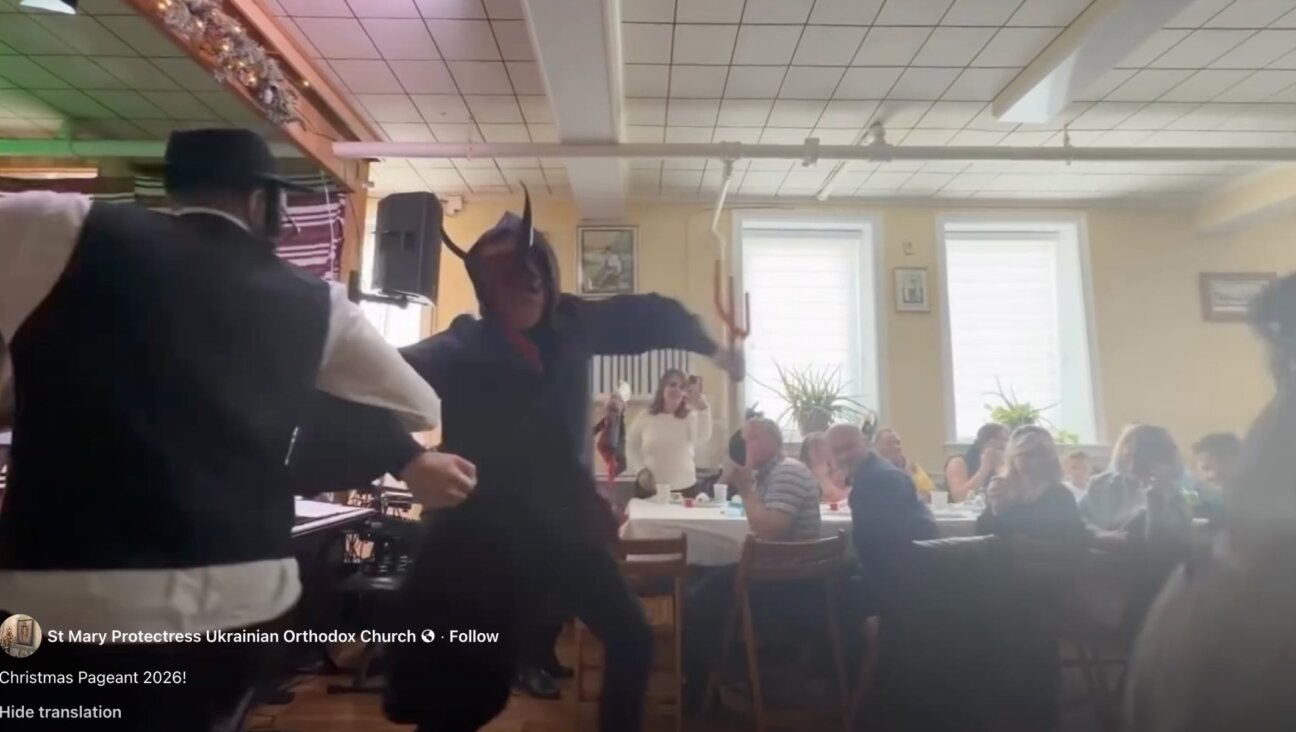The woman who stared down Chris Christie is the star of a new movie — you can stop calling her ‘a feisty Jewish grandmother’
Former New Jersey state Senator Loretta Weinberg is the subject of the documentary ‘Politics Is a Mother’
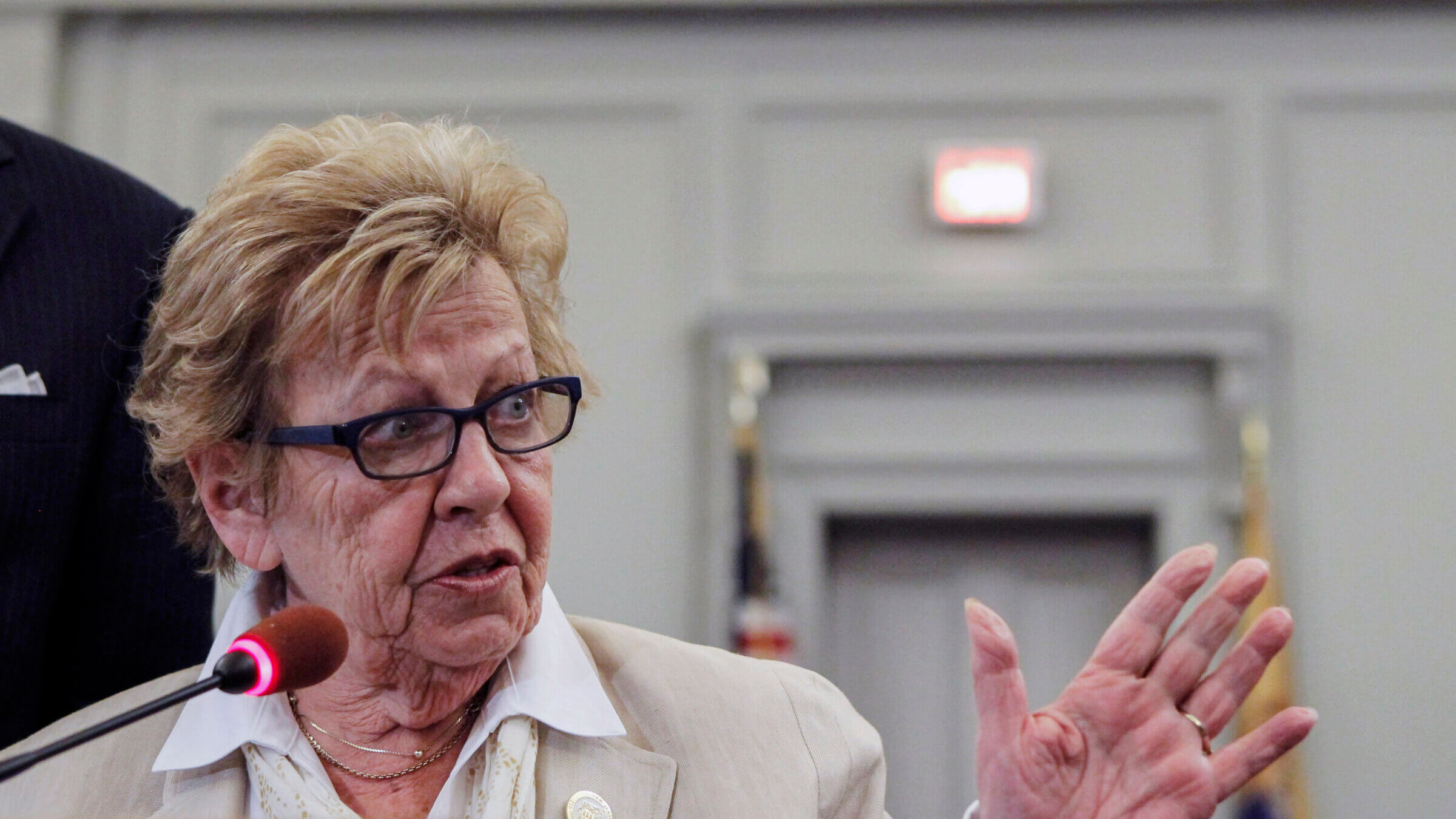
TRENTON, NJ – MAY 06: New Jersey state Senator Loretta Weinberg in 2014. Photo by Getty Images
On some level, Francine Weinberg Graff launched her documentary about her mom, former New Jersey state Senator Loretta Weinberg, when she was about five or six years old.
Graff, director of Politics Is a Mother, Raising Hell is Part of the Job, was keenly aware early on of how different her mother was from the other suburban moms in Teaneck, NJ.
“She did not take me to the park after school or lead a Girls’ Scout Troop or attend PTA meetings,” Graff told me over Zoom from her home in Culver, CA.
“I did attend a PTA meeting,” interrupted Weinberg, who was also in the Zoom meeting and speaking from her apartment in Teaneck. “I lasted through one PTA program and that was it.”
“I never knew that,” Graff said with a laugh.
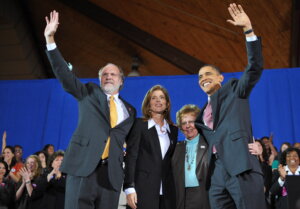
The spirited, no-nonsense Weinberg, who served in the New Jersey State Senate from 2009-2022, and was New Jersey Governor Jon Corzine’s running mate when he lost a reelection bid to Chris Christie in 2009, is best known for her advocacy on behalf of marriage equality, reproductive freedom, and the law to ban smoking in bars and restaurants.
She also helped to expose what came to be known as “Bridgegate,” the 2013 Fort Lee lane closures on the George Washington Bridge in which massive traffic jams were created as an act of political revenge under the leadership of Chris Christie. To this day the scandal is seen as partially responsible for the death of Christie’s 2016 presidential ambitions.
Weinberg, who retired in 2022 and joined the Board of Directors at Horizon Blue Cross Blue Shield of New Jersey, says her commitment to civic activism remains intact and has deep roots.
“I got politically involved in the 60s because of all the issues I was passionate about,” Weinberg said. “I wish I could take an antidote for it, but I have never lost my passions for issues that will continue to exist in my lifetime, Francine’s, yours, and my grandchildren’s.”
“My mother has the political bug,” said Graff. “She’s on fire with her amazing ability to address all these issues. She’s always on the right side. Chris Christie never intimidated her. She outsmarted him at every turn. I couldn’t stop my mother from her political activities if I tried. This is what she was meant to do.”
Graff’s documentary is an amiable slice of life depicting the career of a determined reformer who refuses to remain silent and unseen in the heady and not always welcoming world of regional politics.
Weinberg comes across as highly intelligent, steely and compassionate, particularly in her relationship to her late husband, Irwin, an entrepreneur and work-at-home dad who died of cancer in 1999. In some ways the film is also a tribute to him. An entrepreneur who designed retail spaces, often for bookstores, he assumed many of mom’s traditional roles, way before it was trendy to do so.
“He had no bucket list,” Weinberg said of Irwin Weinberg. “He only wanted to live the remainder of his life the way he had lived his life up until that point, fully supporting me. Like Ruth Bader Ginsburg’s husband, Marty, he had a great sense of humor. They use ‘Marty’ as a noun. They say ‘Be a Marty.’ I say, ‘Be an Irwin.’”
I asked Weinberg whether it was possible for a married woman to make it politically without a supportive husband. Weinberg admitted it’s difficult and that either way sacrifices are built into the dynamic.
“Do you go to your daughter’s dance recital or attend the crucial vote?” she asked rhetorically. “Choices are made. You can’t have it all all of the time.”
Graff, a veteran TV producer and director, told me that there were many reasons she decided to make a documentary about her mother for her debut feature, but one of the most important was to dispel the myth that all politicians are corrupt.
“I knew that was not true,” Graff said. “My mother was not corrupt. In fact, she was going after corrupt politicians. I wanted to show that if an almost 80-year-old woman who is supposed to be invisible — now she is almost 90 by the way — could go up against the most powerful governor in the country, then you, the audience, can do it too,” said Graff.
“This is not a love letter to my mother, no offense, Mom,” she added. “This is a love letter to women. We’re not invisible. We have a voice. If you want to be a grandmother with grandchildren, go for it. But if you are called to do something, get in the game because the world needs you.”
“People are dropping out of local politics because it’s too nasty for them and they feel their kids are under attack,” Weinberg said. “I’m hopeful that the film will get ordinary people involved. I’m not a lawyer or engineer or insurance broker. That’s generally what politics attracts for a whole variety of reasons. If I could do it all over again, I would be a lawyer. When I was a kid, my role model was the comic strip character, Brenda Starr, girl reporter with wild red hair who had great adventures.”
Weinberg said that her Jewish values have defined her public life, and that she receives great solace from participating in online synagogue services, though neither she nor her daughter are fond of the way the press has characterized her as a Jewish grandmother.
“‘A feisty Jewish grandmother,’ cooking kugel with one hand and creating legislation with the other,” said Weinberg. “It never happened. I’d buy kugel in the bakery.”
When I asked Weinberg if she played a role in creating the documentary, she said she was never even asked if she wanted to do the movie at all.
“Francine was just there with the camera asking me questions,” she recalled. “If I didn’t always answer a question one way, she’d find four other ways to ask it. You couldn’t stop her. I went along for the ride. Francine, do you think I played a role in creating this film?”
“Just the opposite,” said Graff. “It was ‘Leave me alone, already.’ She doesn’t like applause. She doesn’t like accolades. I’ve had to reassure her that the film is not about her or us. This is bigger than us. It’s intended to inspire. If we can turn this into a campaign rally, that would be ideal. What else, Mom, would be your ideal?”
“Pro-choice, pro government transparency, which is the bedrock, and gun safety,” Weinberg responded without missing a beat.
Although Graff told me she doesn’t enjoy watching psychodrama, she nonetheless wished that her mother had been more forthcoming on personal matters. But that’s simply not who she is.
“She doesn’t do therapy or contemplate her belly button,” Graff said. “When I’d get into sensitive topics she’d say ‘Some things just are.’ That’s her answer to many issues.”
Even so, Weinberg did allow that personal experiences informed the legislation she sponsored, such as that bill on marriage equality, which was inspired by her experiences dealing with the healthcare system — first as the daughter of a frail, elderly mother and later as the wife of a cancer patient,
“I was free to come into his room whenever I wanted and talk to his doctors and help him make medical decisions,” she said. “Then I heard from gay couples who had been together 20-30 years, relationships that lasted longer than many marriages. Unlike my experiences, if their loved ones were in the hospital they couldn’t walk in and out of the room at any time. And they couldn’t play a role in making medical decisions either. I knew that was wrong.”
Weinberg added that the “personal” dimension is one that women legislators are best suited to bring to the table, she said.
“In my experience men in politics are usually in it for business connections,” she said, then stressed, “I’m not painting with a broad brush. Many men were my political mentors.”
Governor Christie wasn’t one of them. Indeed, as far as Weinberg is concerned, his bullying tactics and aggressive style, both of which were celebrated by many, set the stage for Donald Trump. As for her own relationship with Christie, it was strained at best.
“Once when I was on a train coming home from Washington, he was on the same train,” she said. “He walked up the aisle to speak to some people seated behind me. He saw me, but chose to ignore me. As he walked past me on the way back, I turned to him and said, ‘You can say hello. I won’t hurt you.’ He stopped abruptly and stared, pointing a finger at me. ‘You!’ he said and after a moment continued walking. I turned to the people behind me and said, ‘See? He’s afraid of girls.’”
Curiously enough, Francine Graff never toyed with the idea of a career in politics, but she does see similarities between her line of work and her mother’s.
“In both fields, you need resilience,” she said. “I got that from my mother.”
“Politics Is a Mother” will next be shown at the Teaneck Film Festival, Nov. 10.
